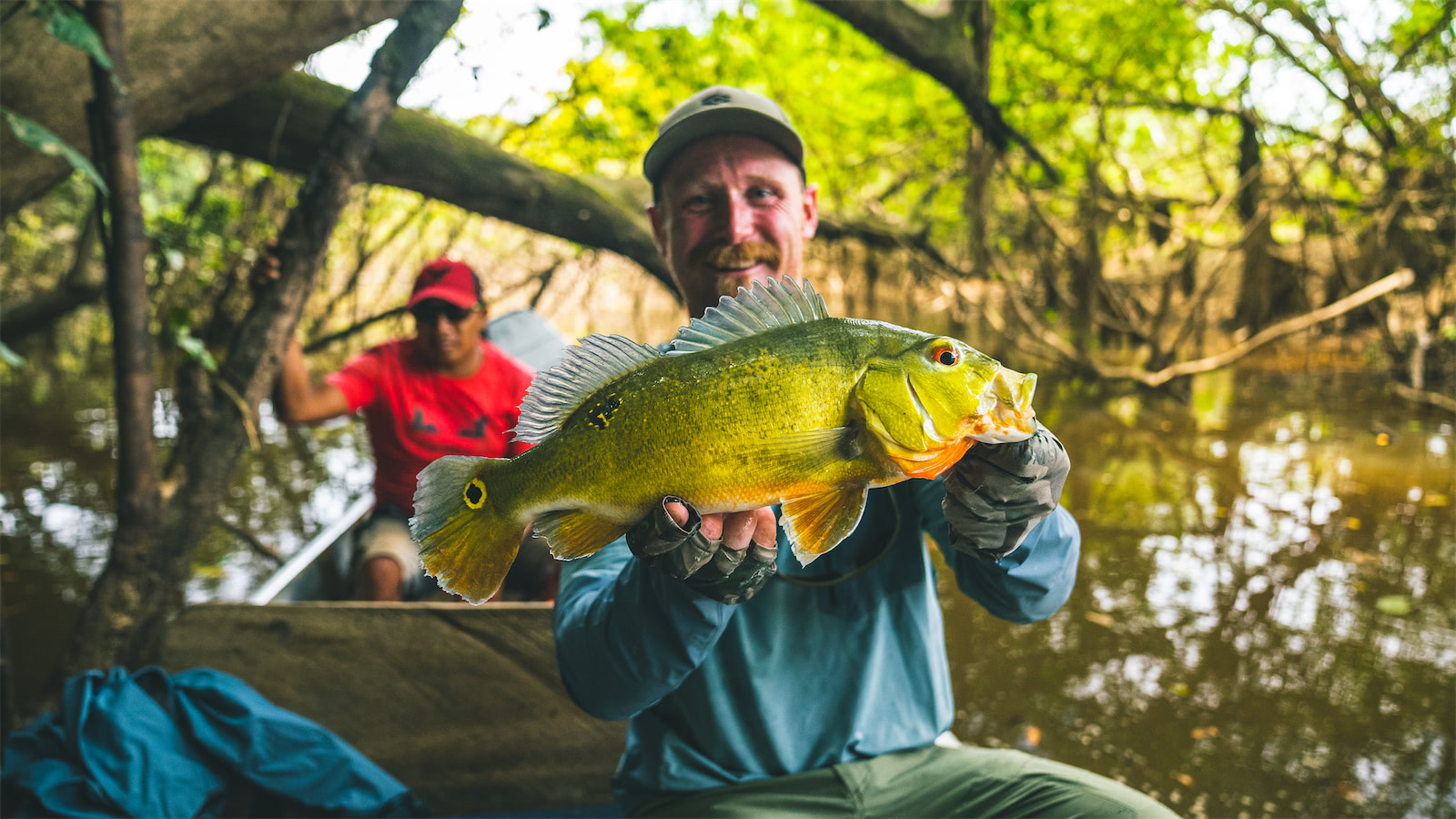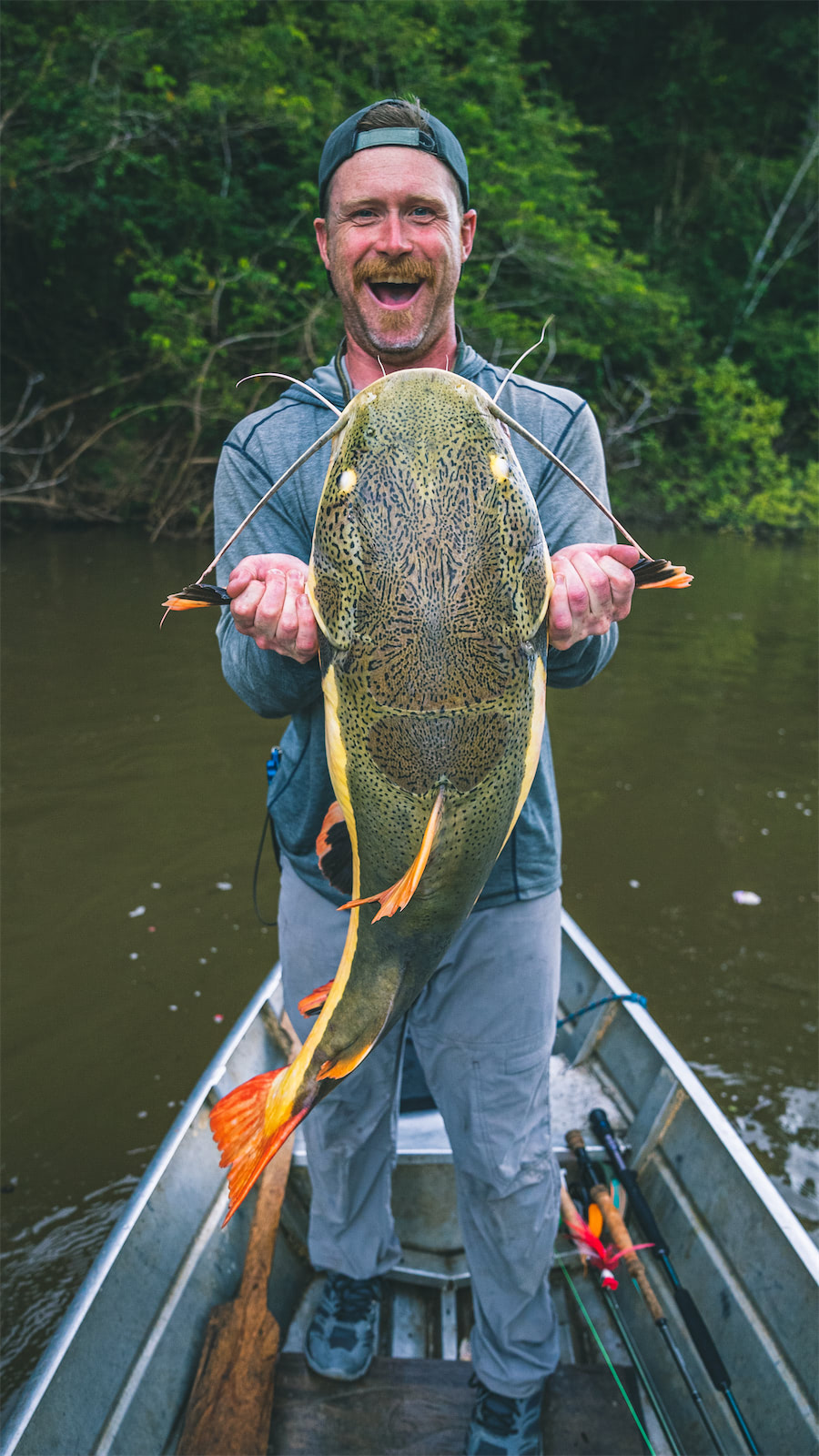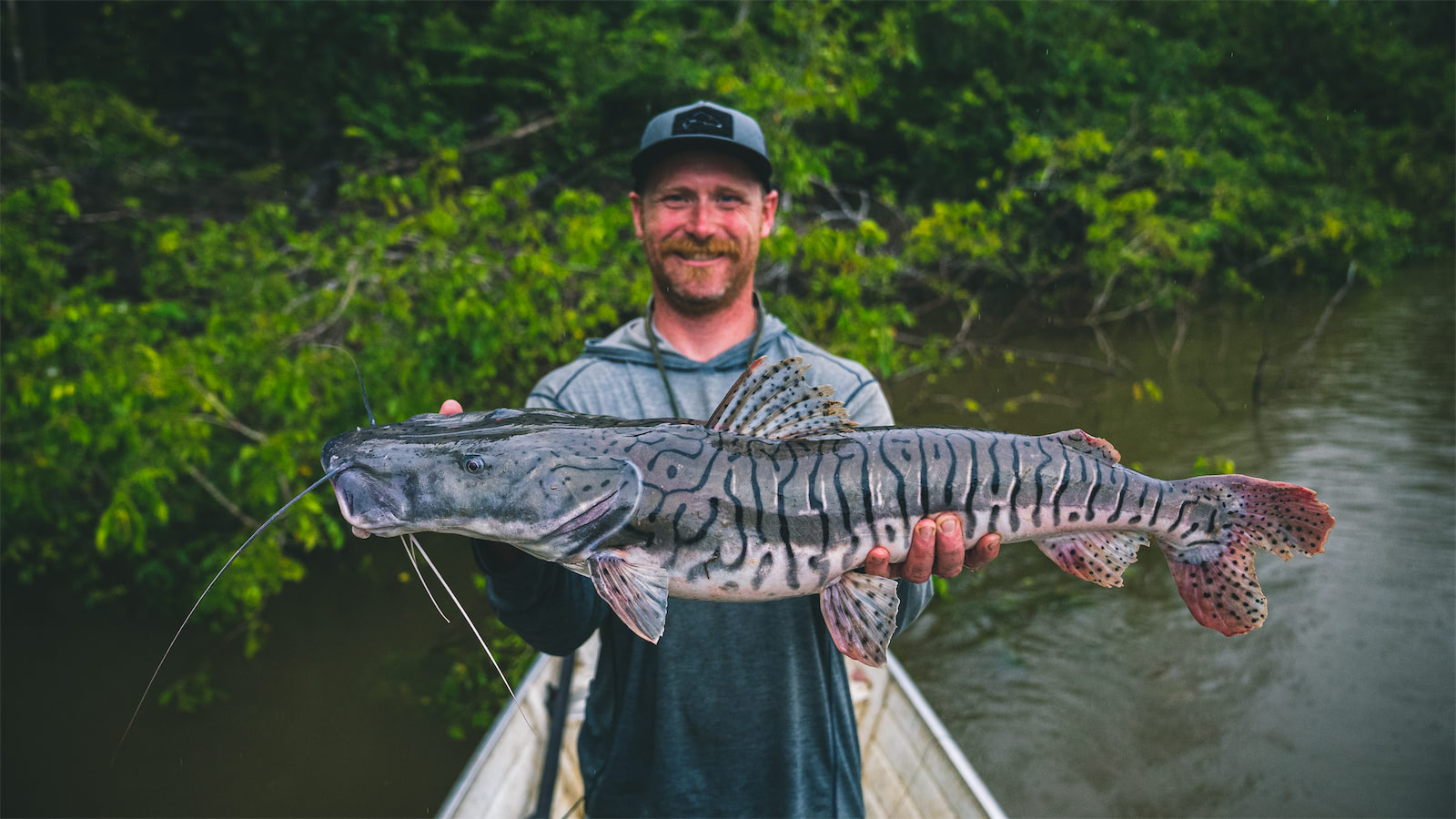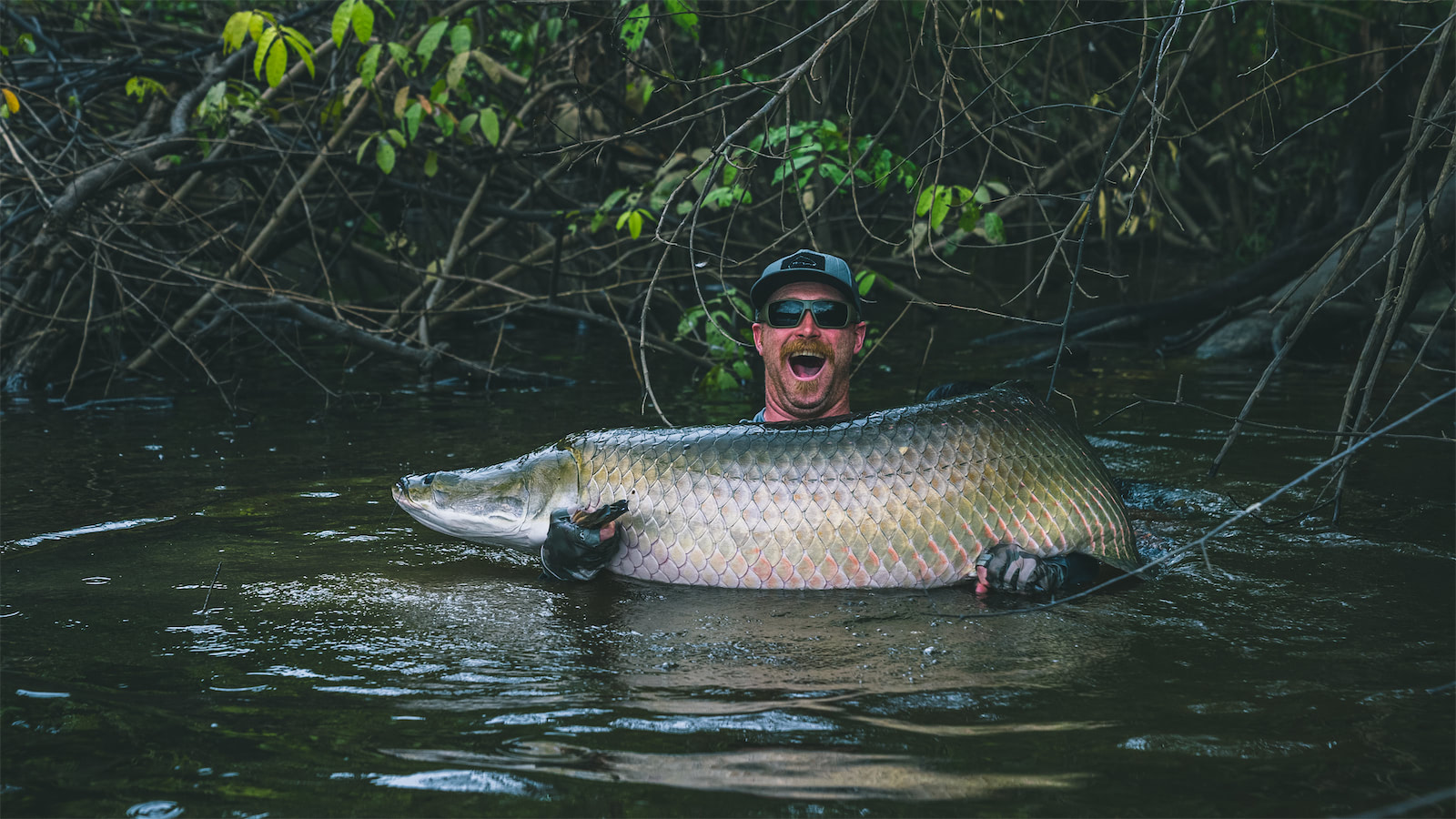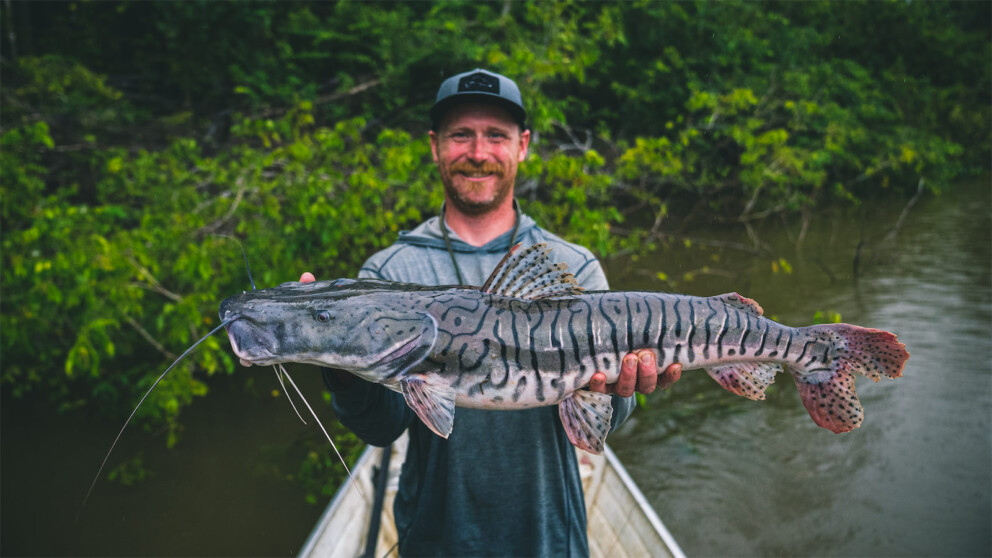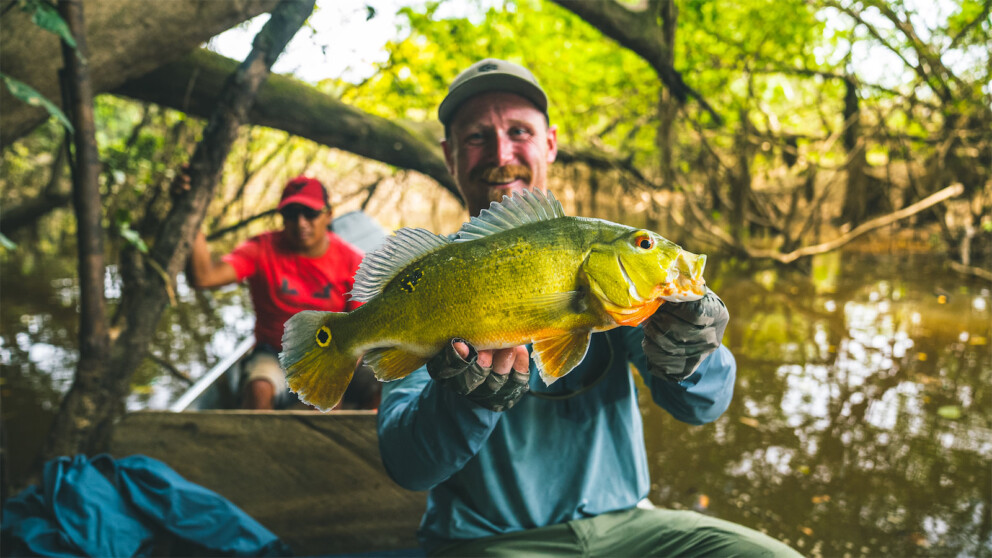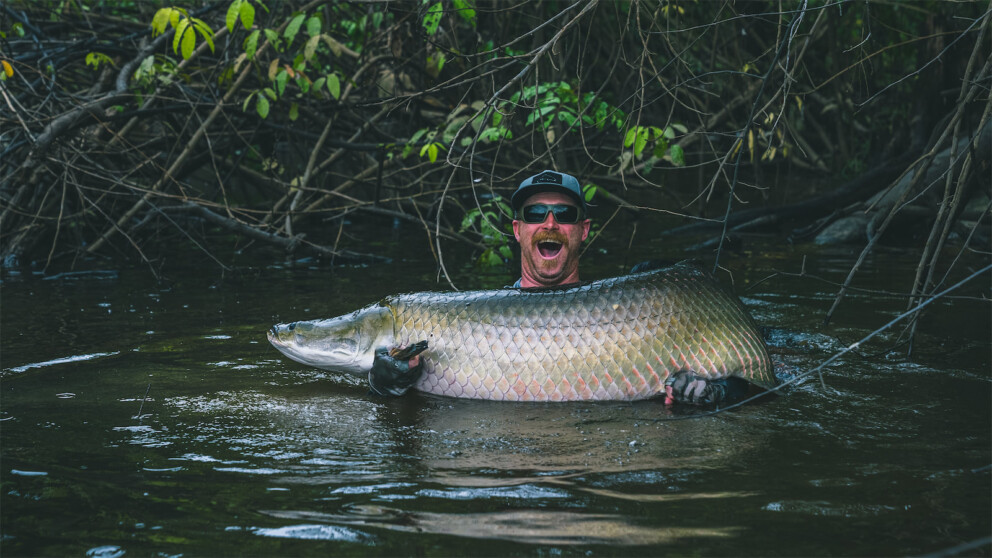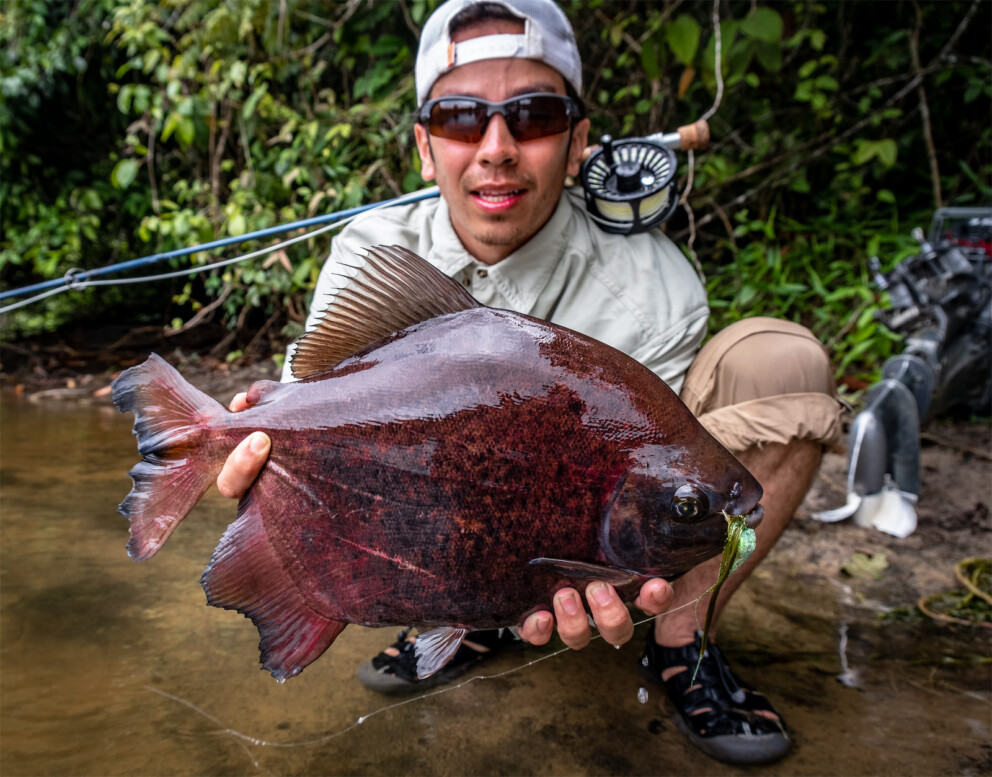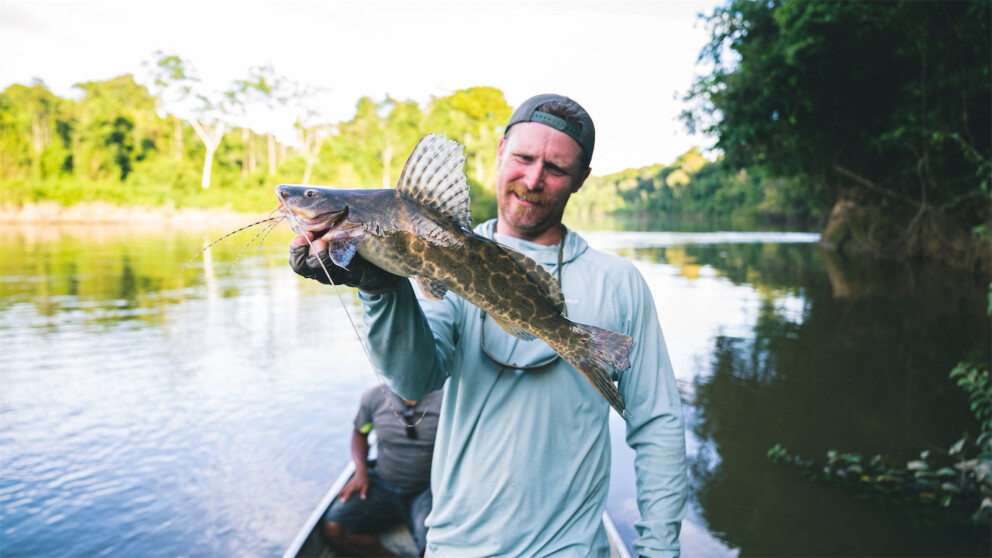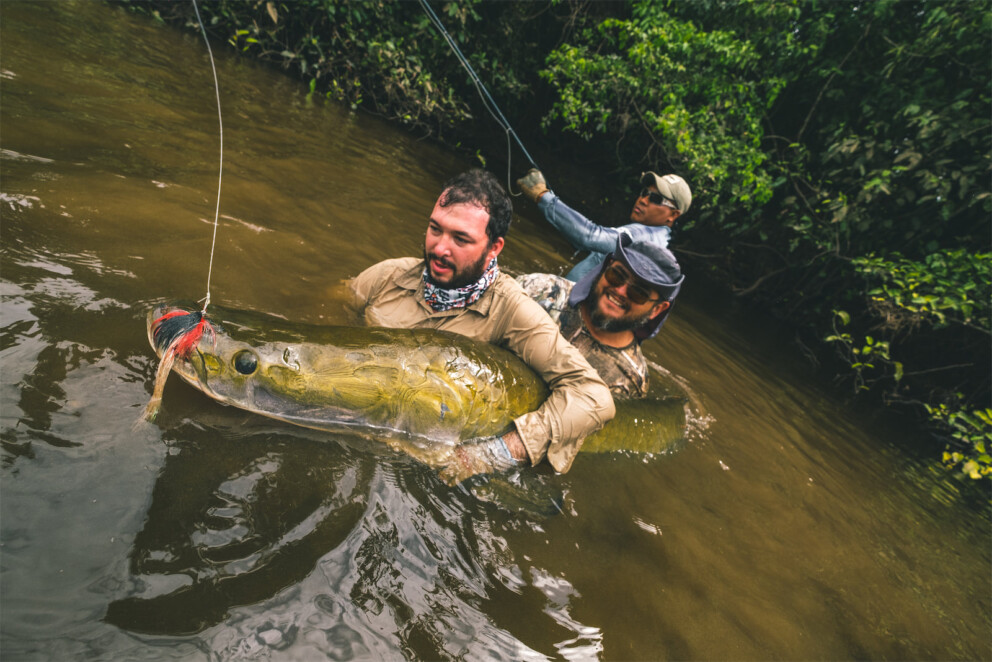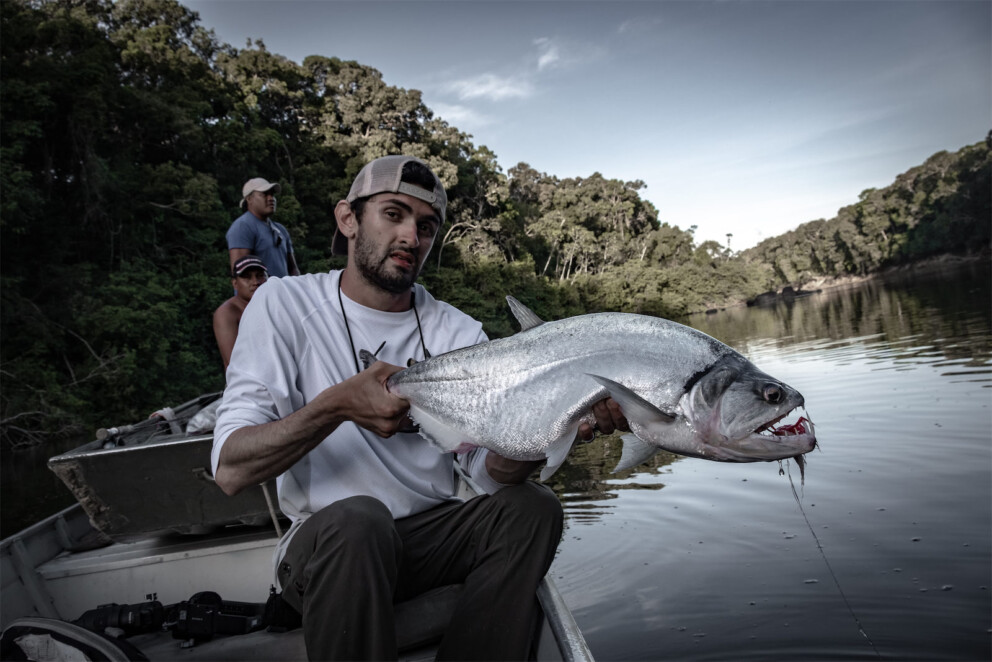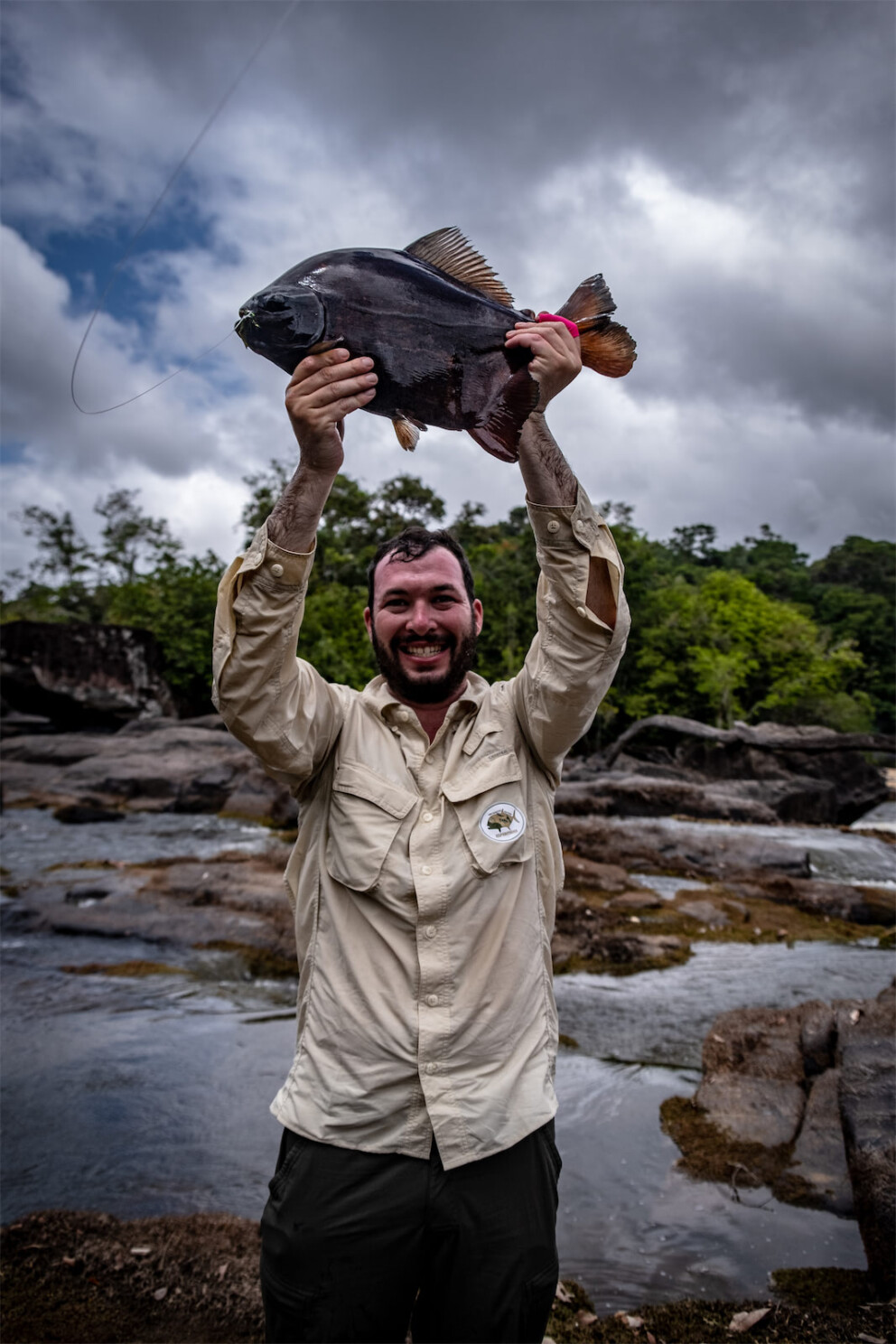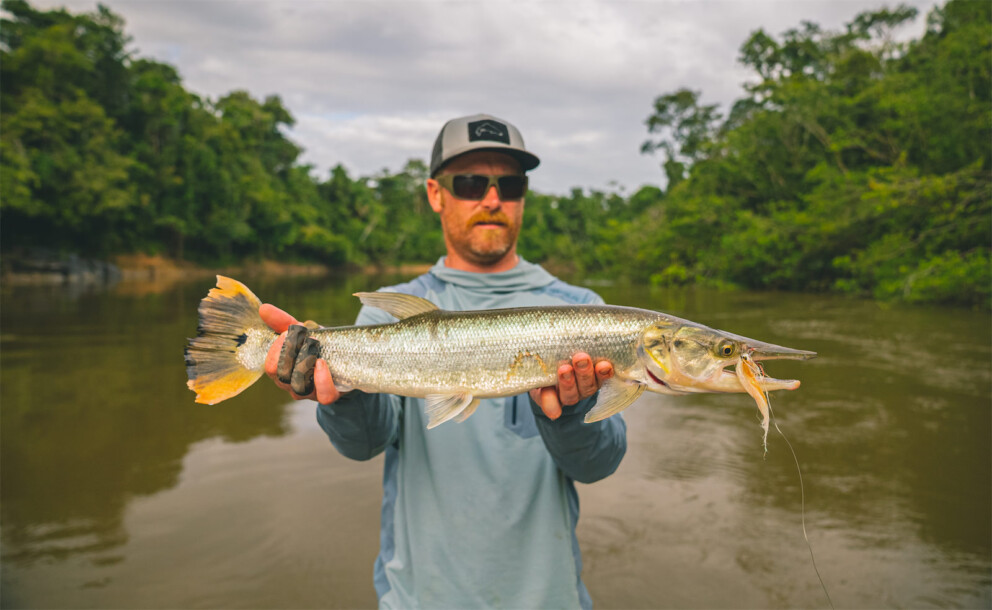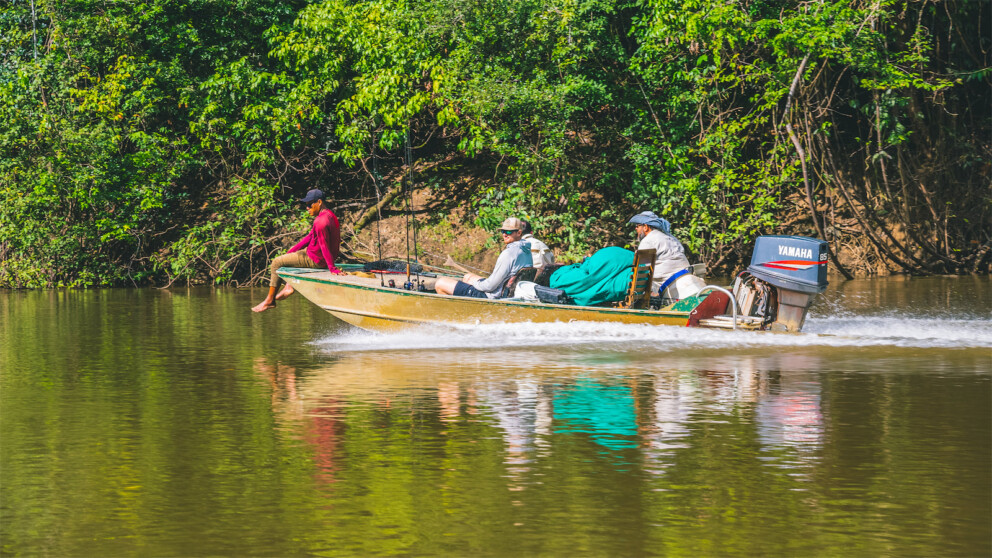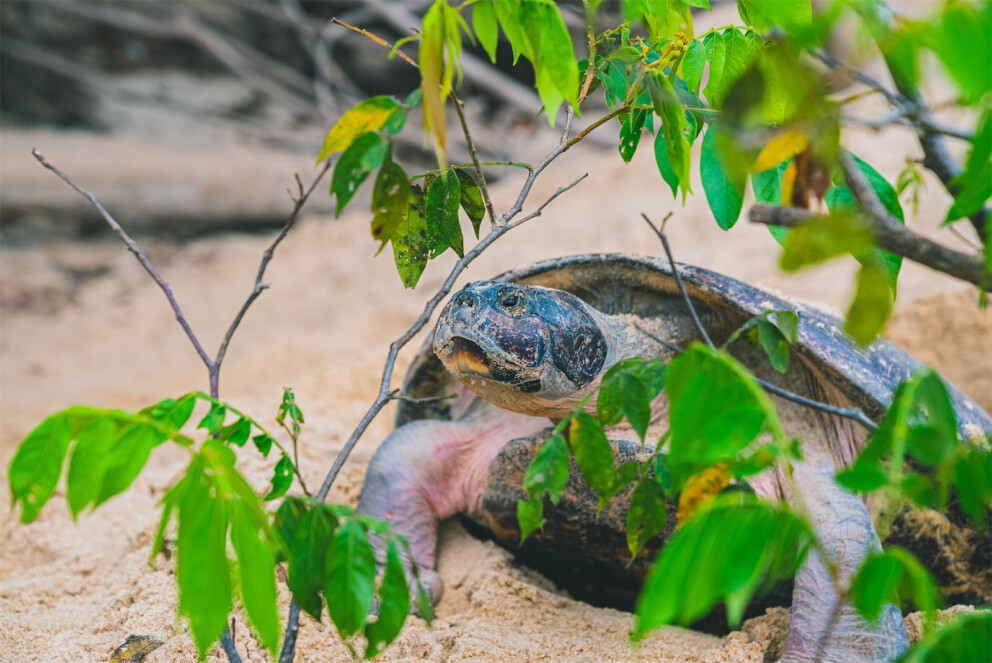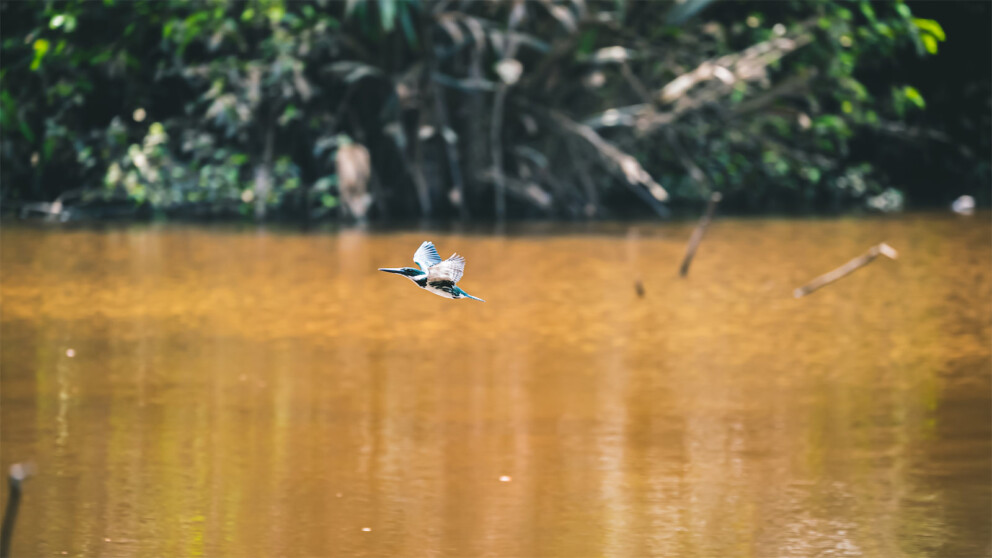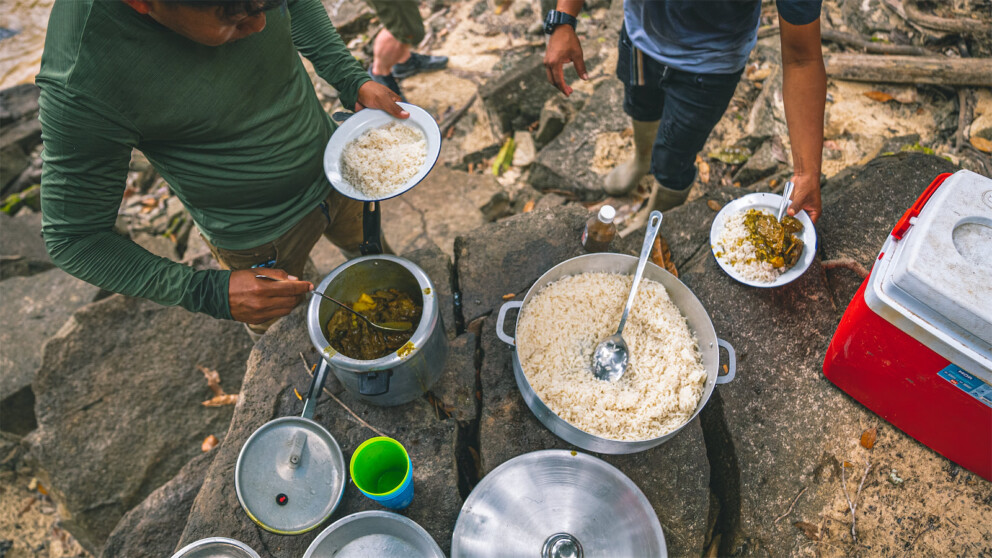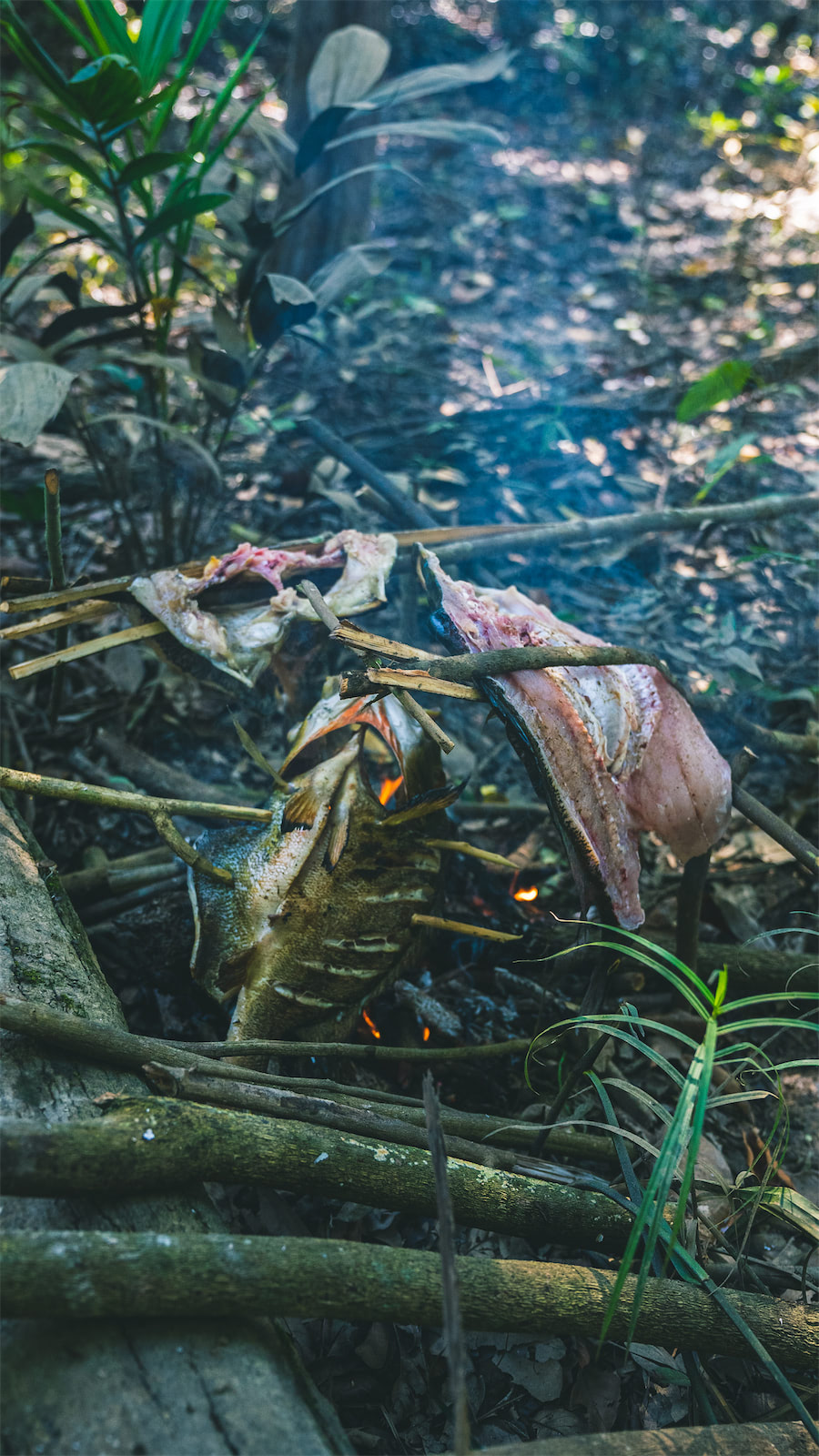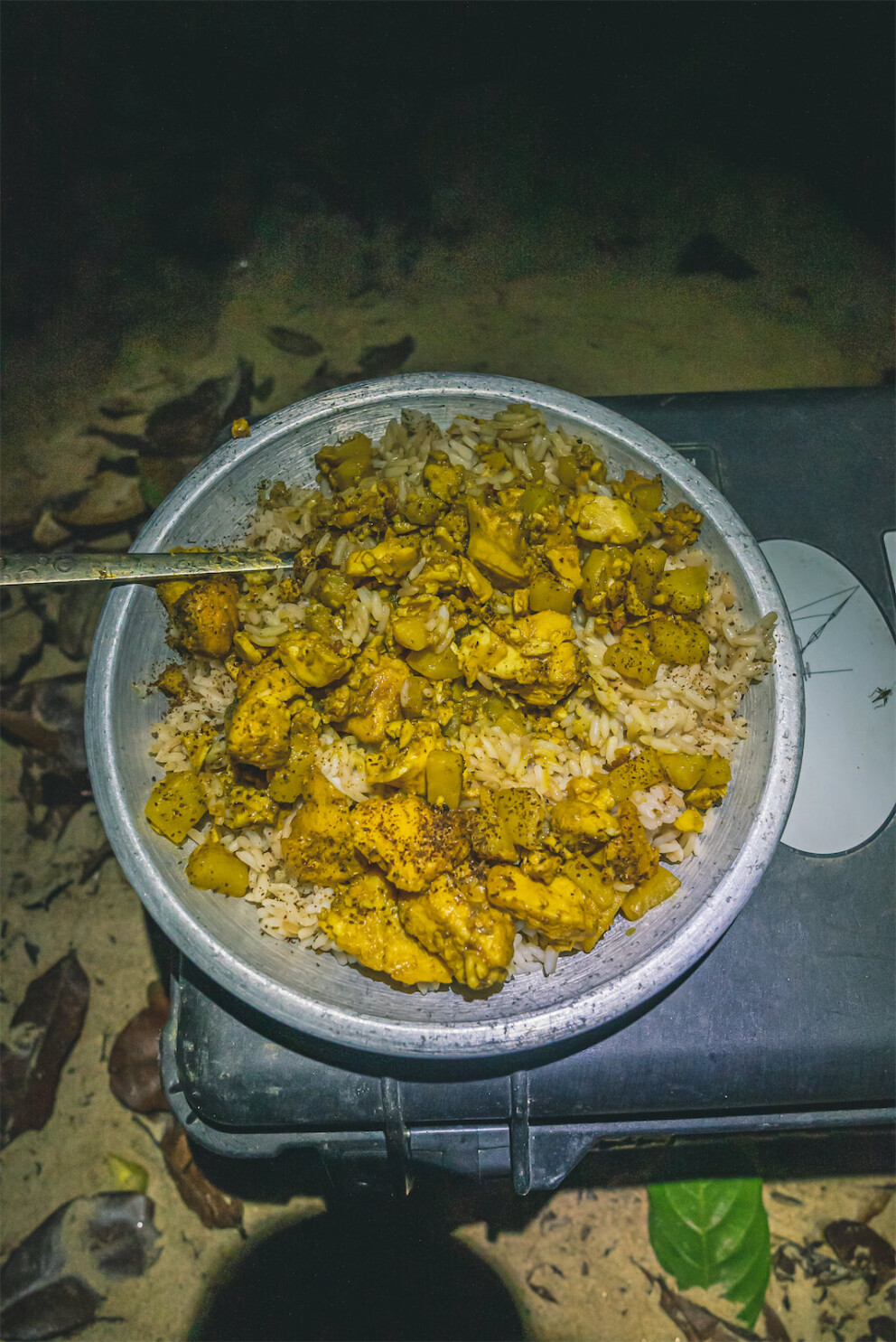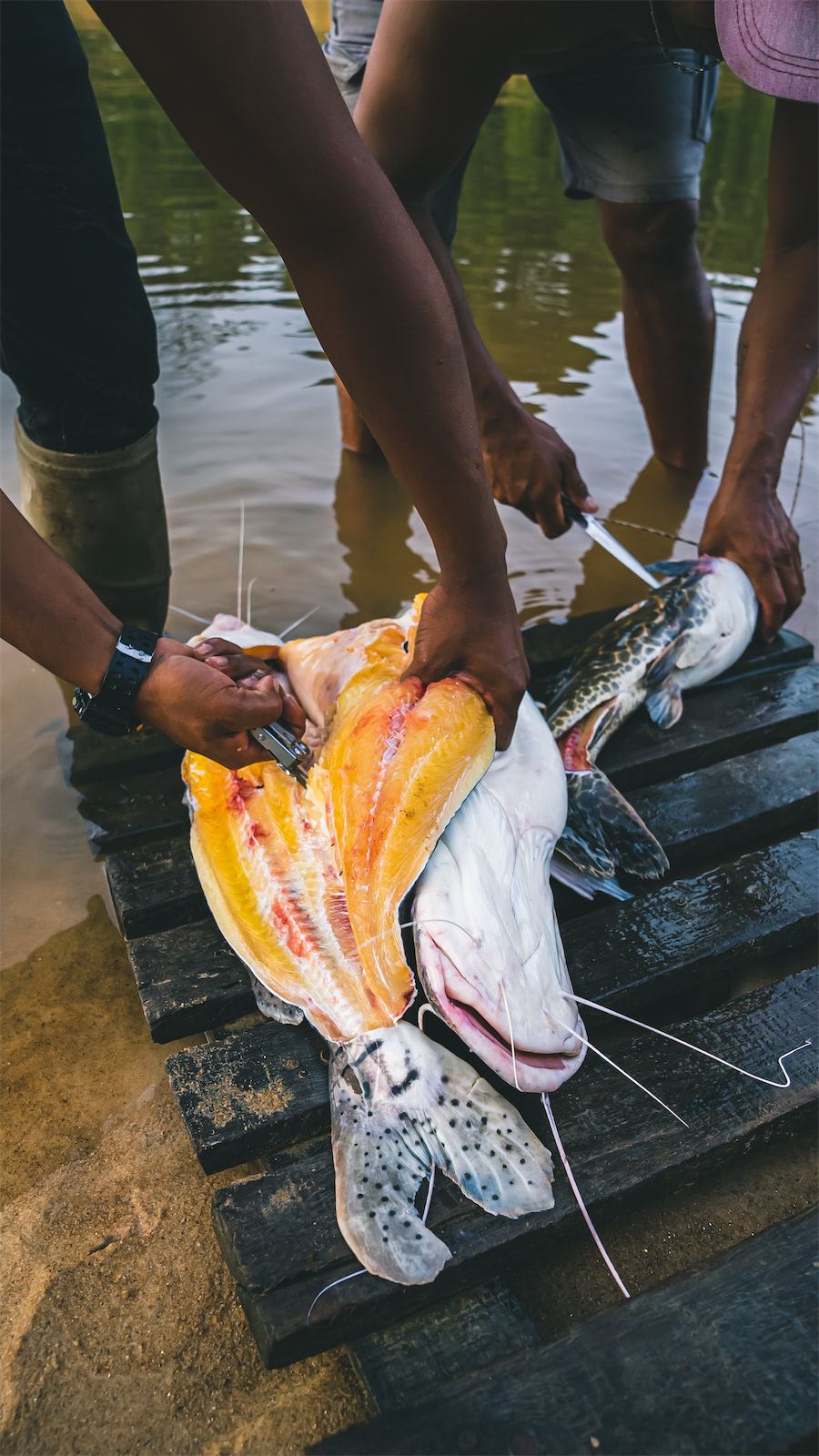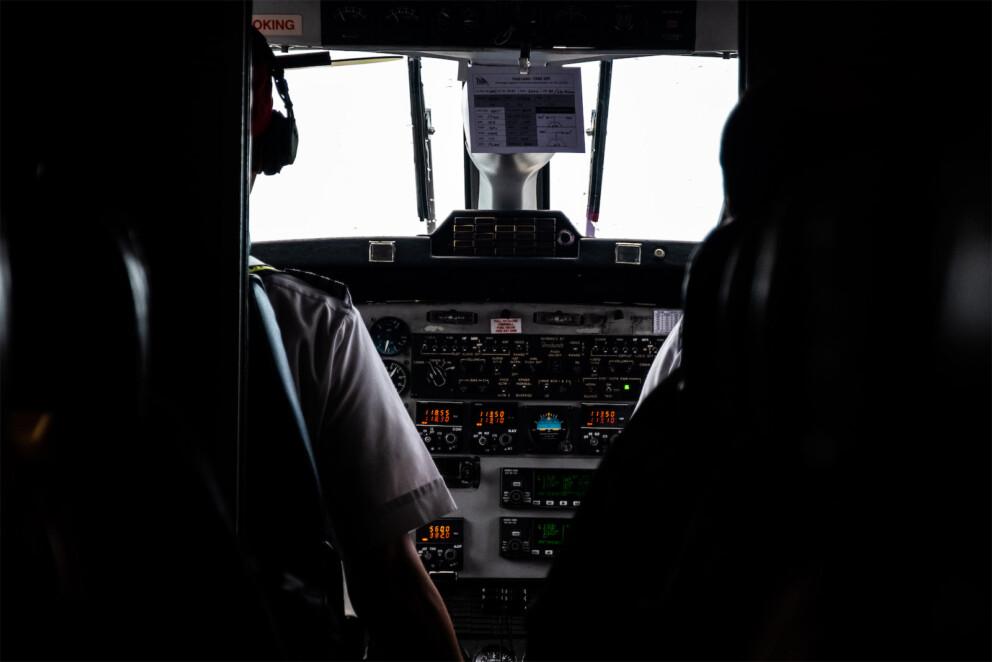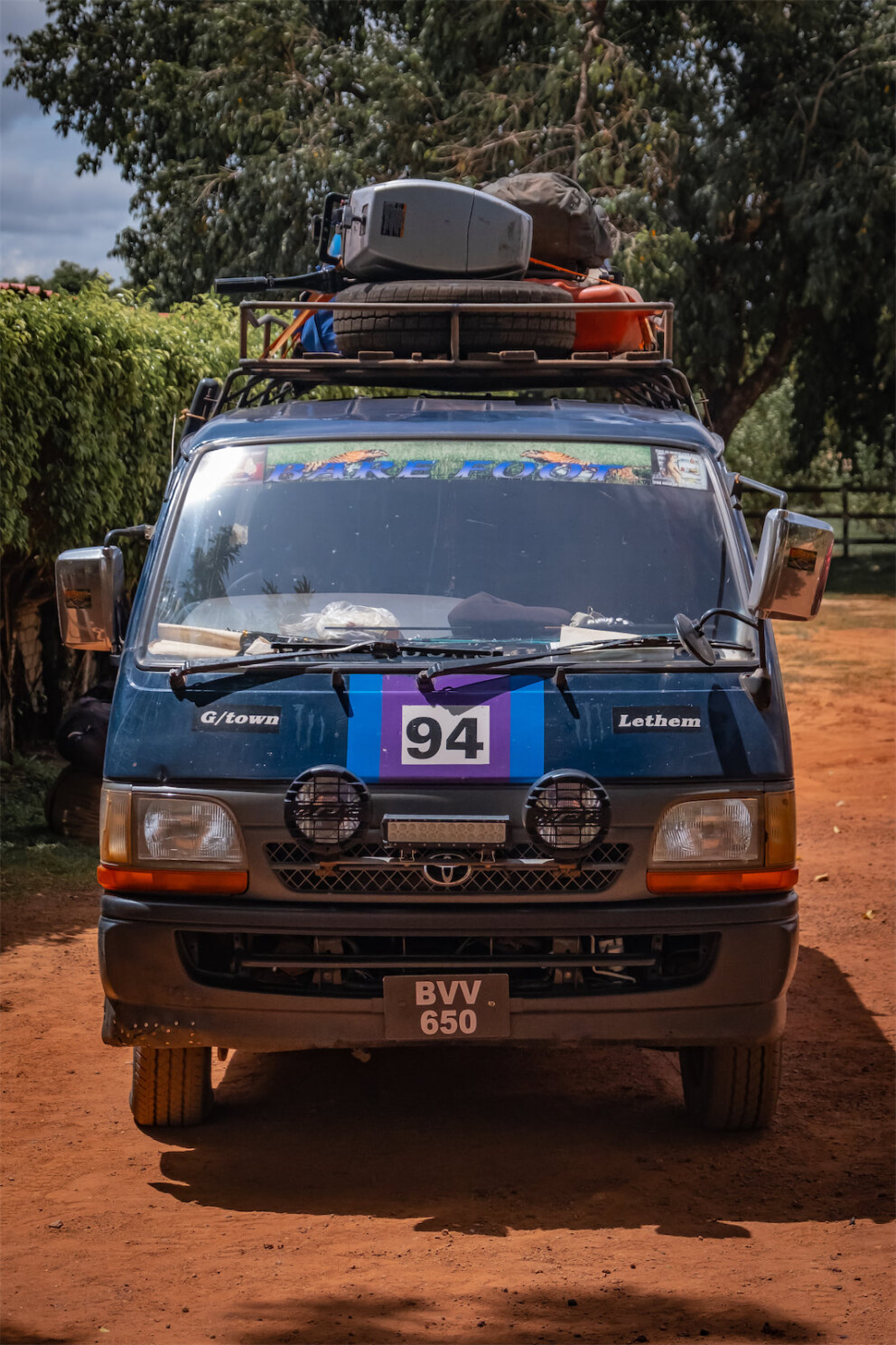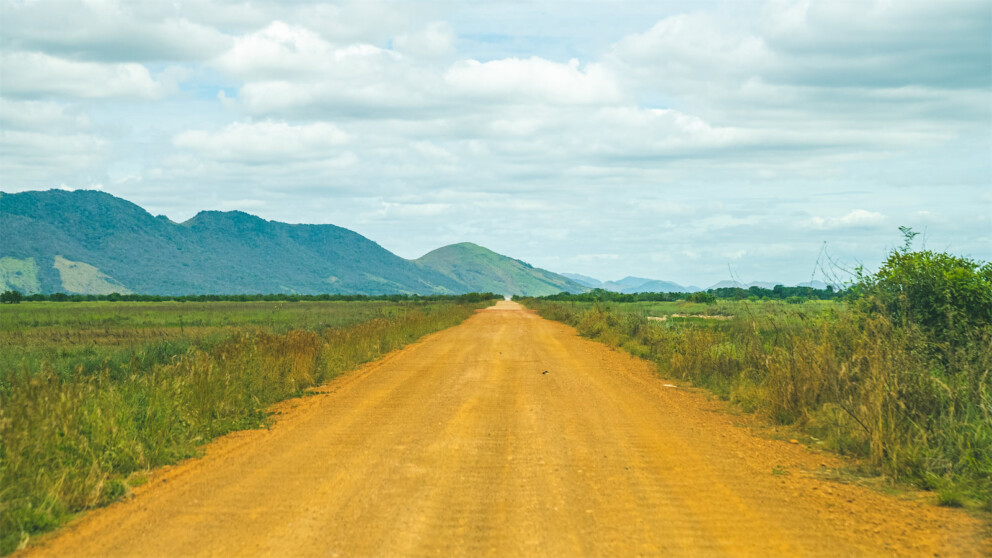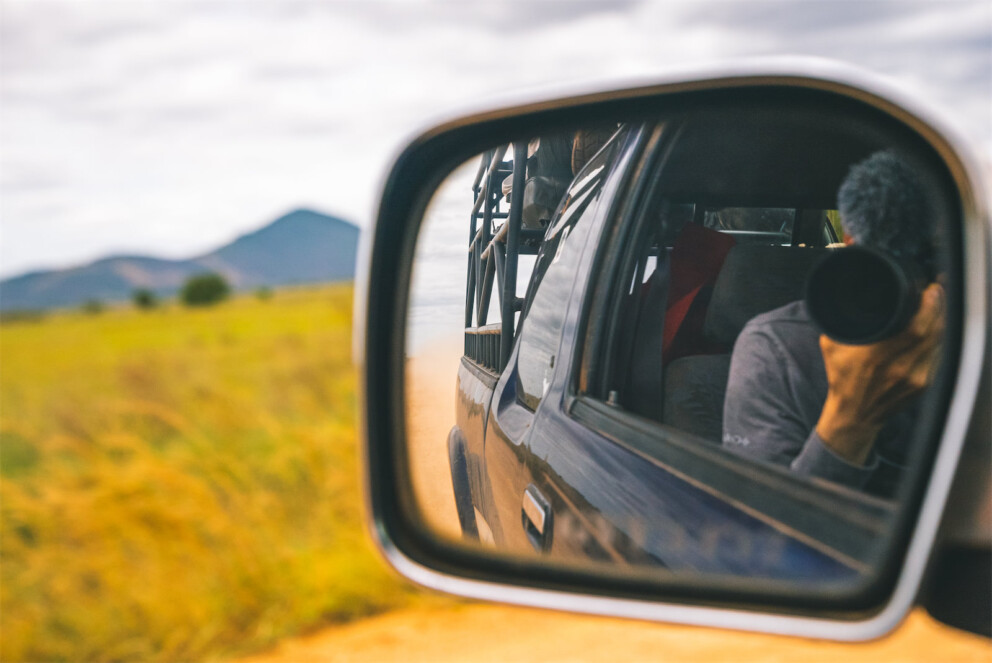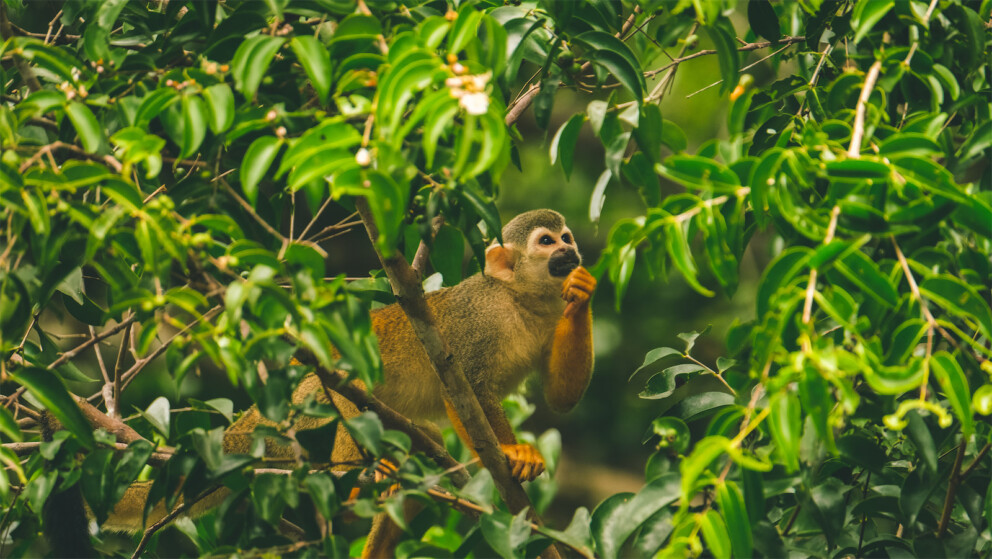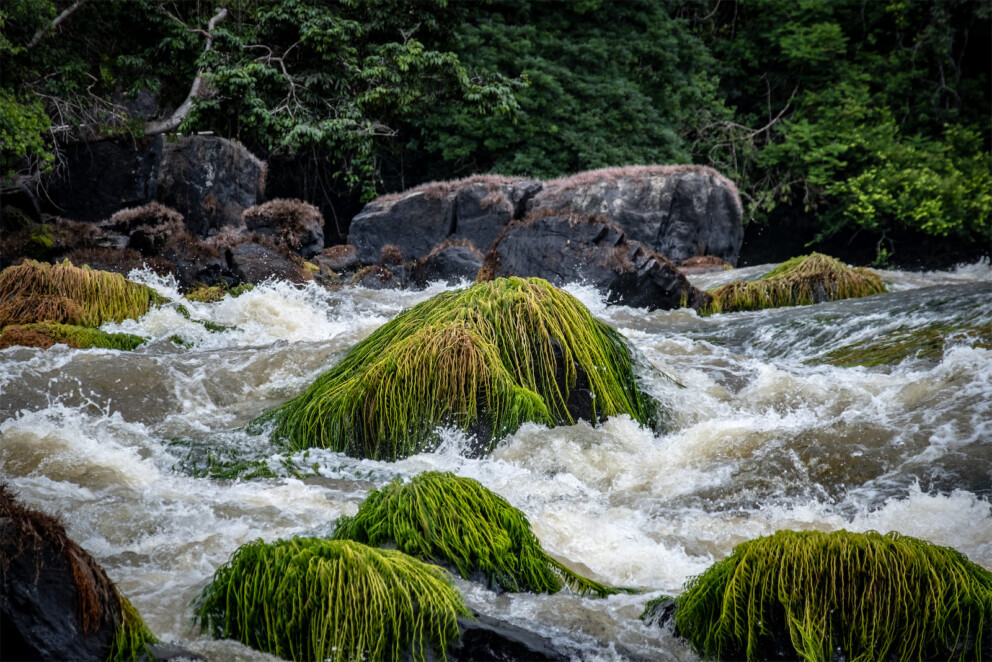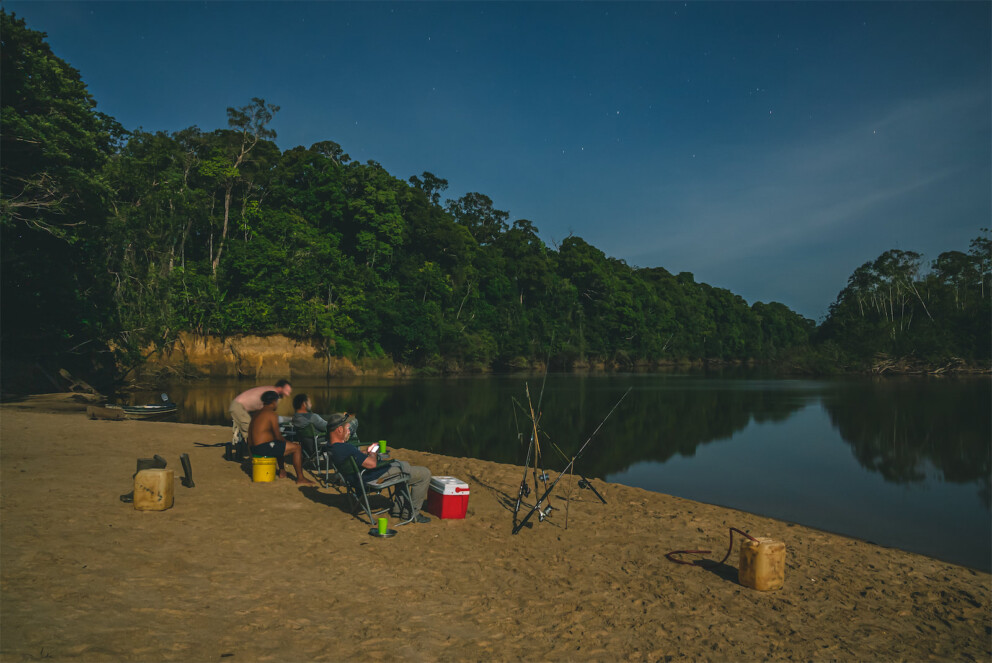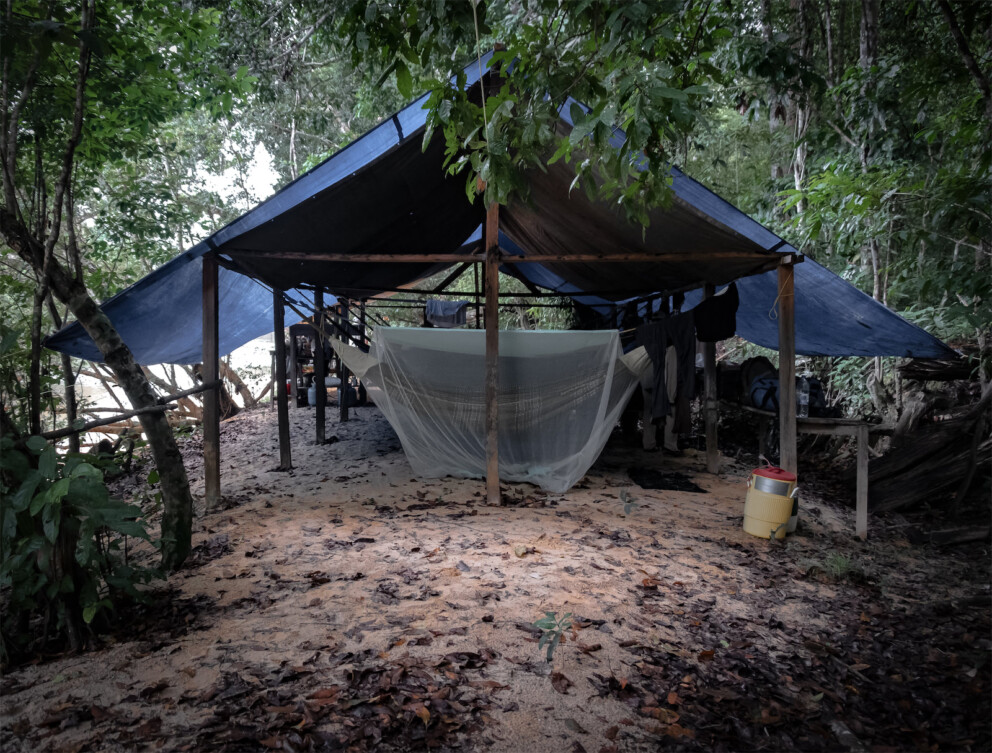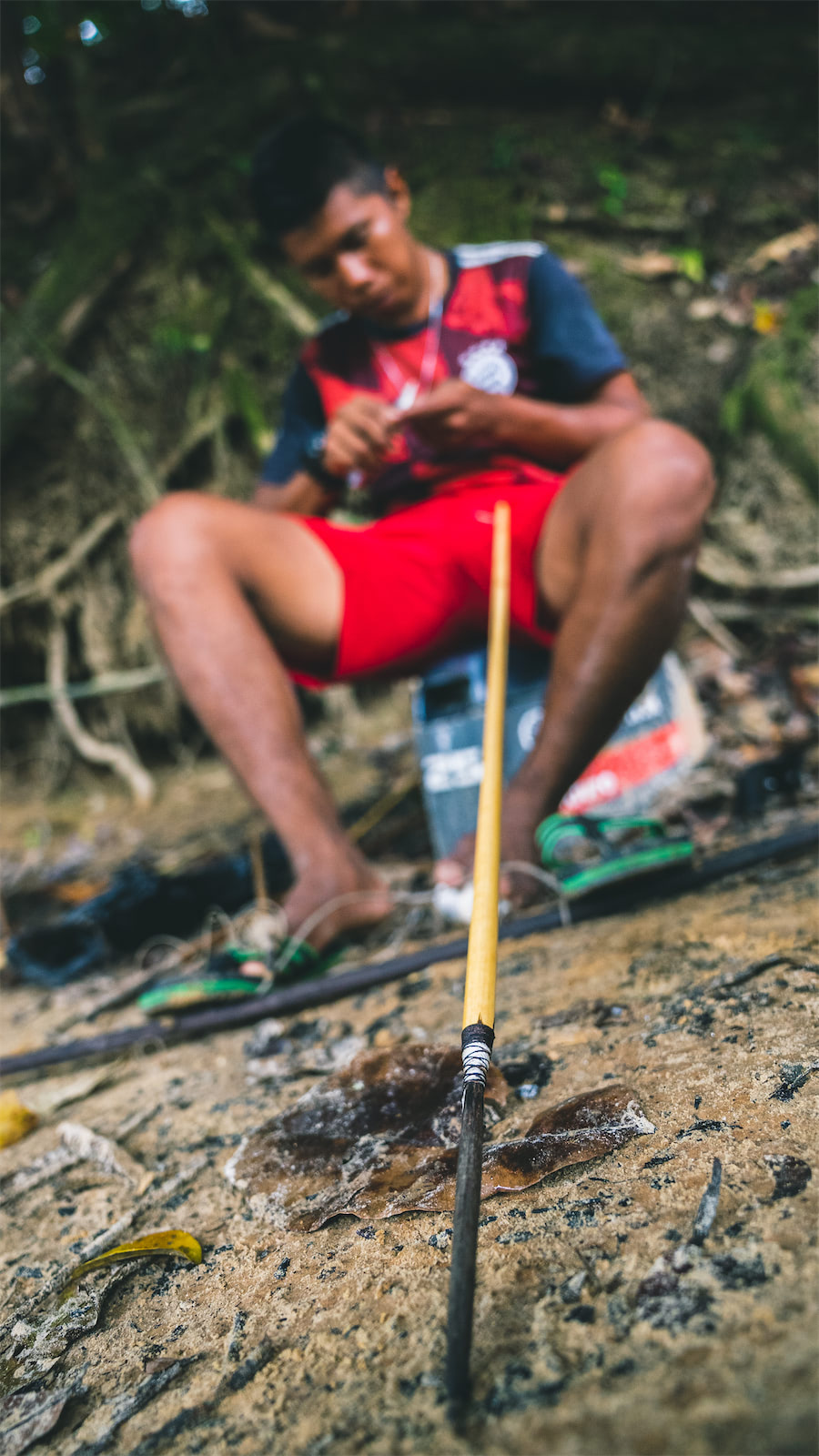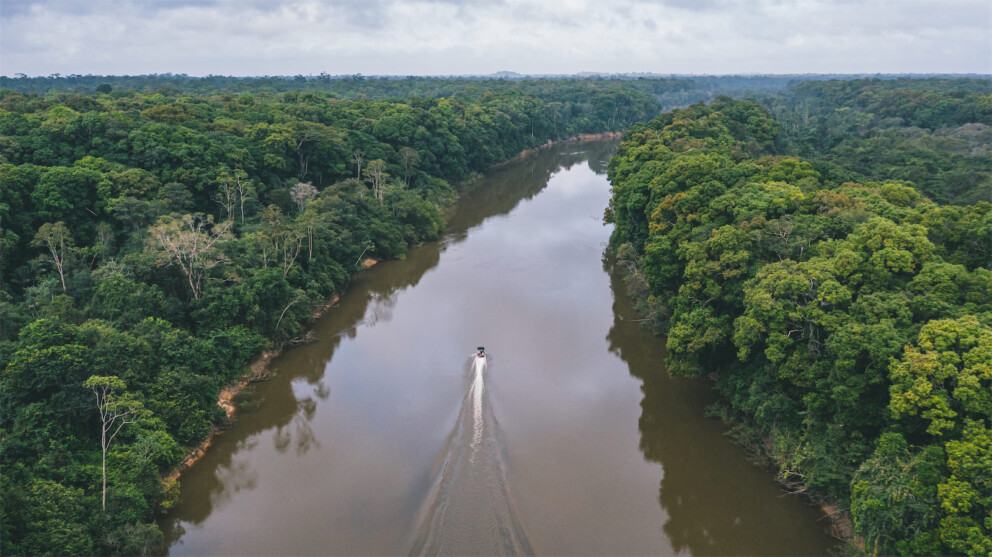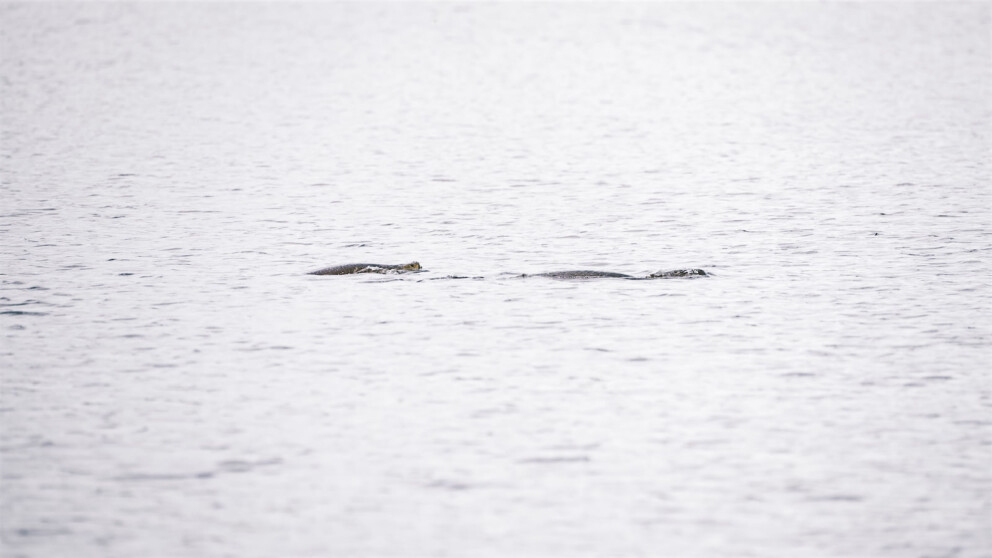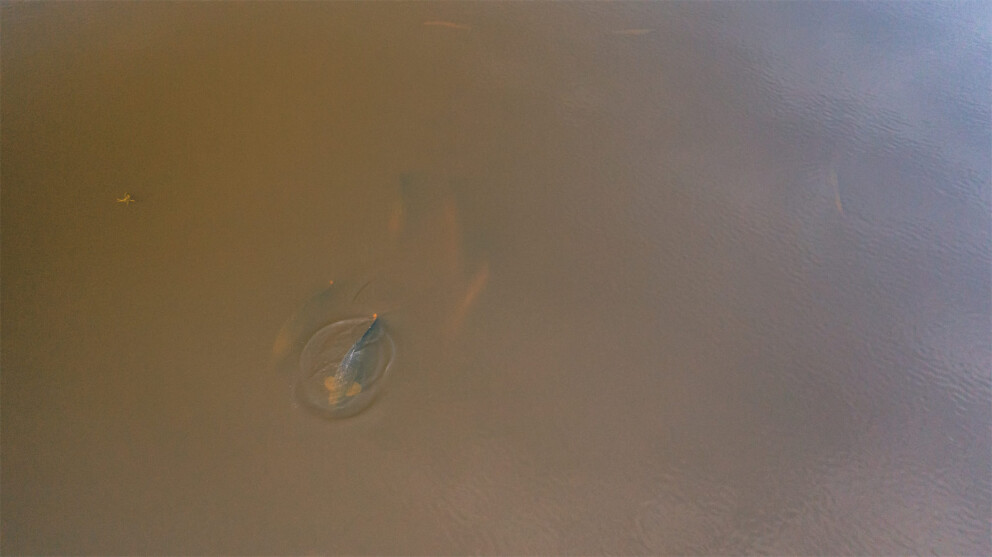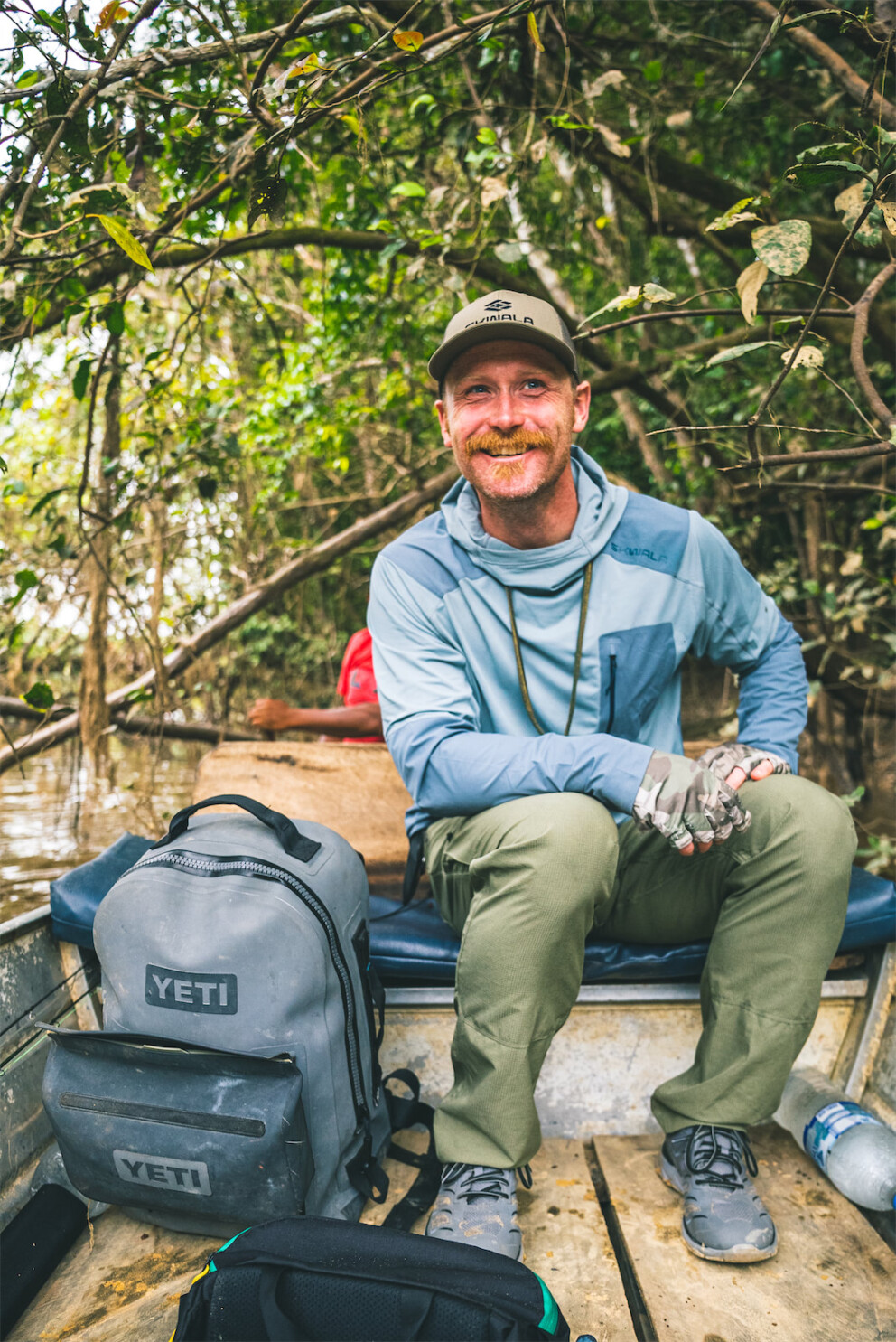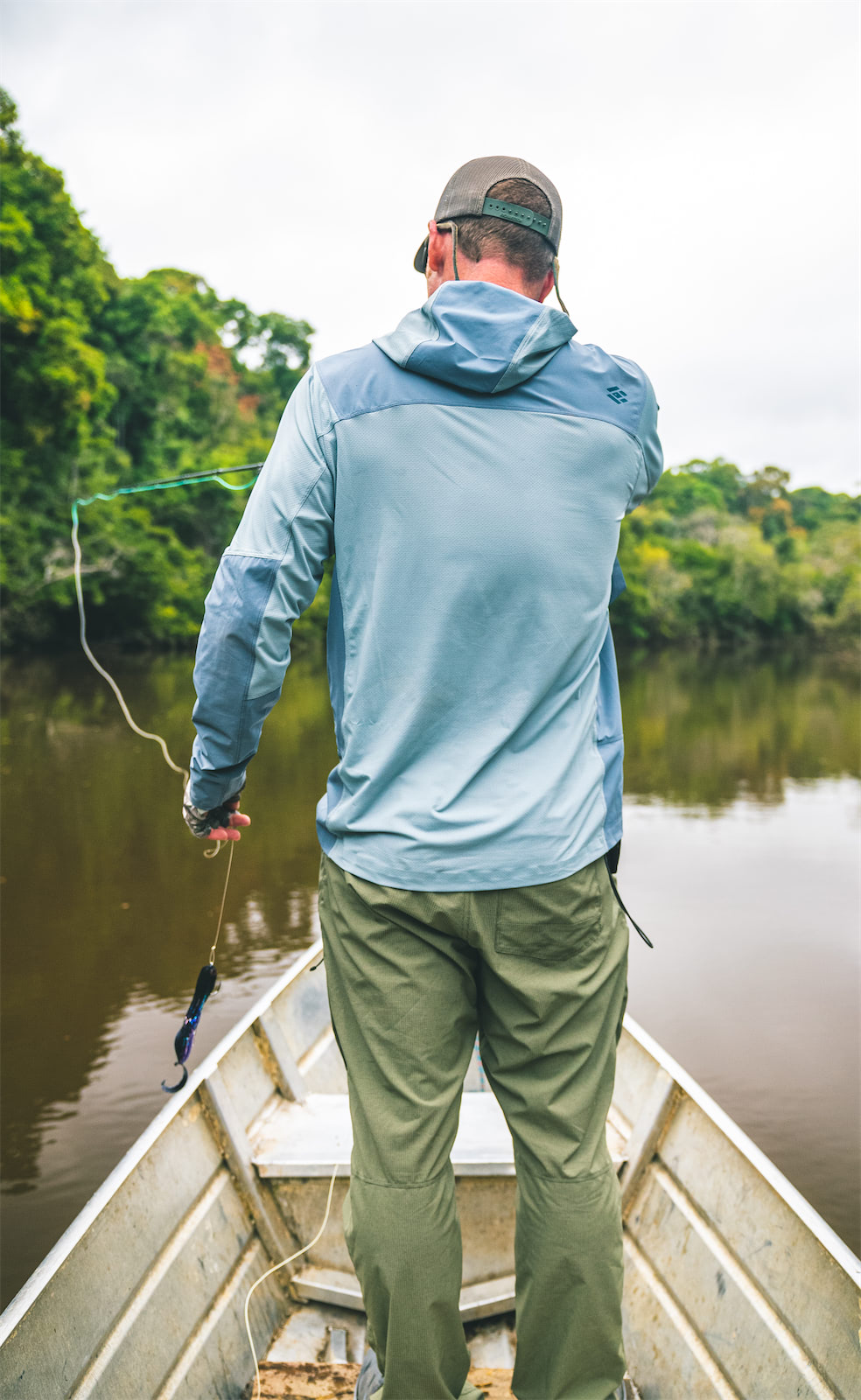Join our very own Sam Lungren on the mighty Rewa River in remote, untouched southern Guyana. You’ll fish with native Macushi and Wapishana guides in the stream and its adjoined lagoons and ponds for the full suite of mind-blowing jungle species, like the “vampire fish” payara, brilliant peacock bass, muscular catfish, tricky pacu, and, of course, the incomparable arapaima—largest scaled freshwater fish on Earth.
Imagine you’re fishing for giant tarpon and snook in a backwater lagoon in South Florida or Mexico. Now replace those mangroves with towering tropical jungle. All is calm and quiet. The guides glide the small boat around a small lake deep in the jungle. Suddenly, a 9-foot-long fish appears from the murky water to gulp air only 20 feet away. You land a foot-long fly on its nose and it surges forward to devour it. Strip-set correctly and you’ll think you’ve hooked a quarter horse in the haunches when the beast takes off.
Sam specializes in far-flung adventure travel and will assist you with every phase of this experience, from tropical disease vaccinations to traveling to the furthest reaches of the Amazon Rainforest and finding the fishes that reside there. But make no mistake; this is a rugged and relatively dangerous adventure with few modern amenities and safeguards. You are ultimately responsible for your own safety and wellbeing. Participants must be skilled outdoorspeople comfortable with camping and ready to endure hot, humid conditions with frequent, heavy rains, as well as insects, reptiles, and other perilous creatures.
This trip will span approximately 10 days total, with eight days of fishing. Guests will fly to Georgetown, Guyana, from Miami or Dallas then transfer to a smaller airport for a short flight to Lethem on the Brazilian border. From there the outfitter will drive you to Annai on the Rupununi River to board boats and head downstream to the Rewa Village, then upstream several hours to the Anteater Base Camp. You’ll fish several productive arapaima ponds in that vicinity before heading upriver to the Corona Spike Camp from which to access Corona Falls for two or three days. At the end of the adventure you will retrace your steps back to Georgetown for a flight back home, ready to share stories and photos of the wildest fishing experience of your life.
Please contact Sam at sam@flyfishinginternational.com with any questions or inquiries regarding this adventure!
